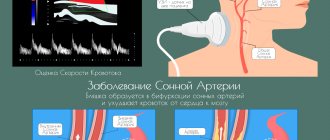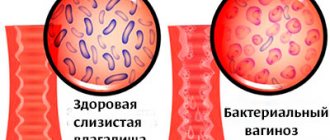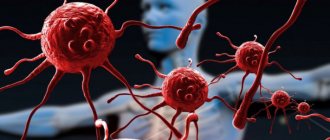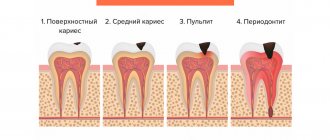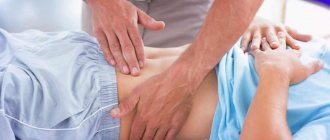Autoimmune thyroiditis is a disorder of the endocrine system, which is manifested by inflammation of the thyroid tissue. It is important to note that the very name of the disease emphasizes the fact that inflammation occurs as a result of a malfunction of the body’s immune system. With the development of autoimmune thyroiditis, the patient’s immune system, instead of fighting foreign agents, directs efforts to damage its own thyroid tissue. This leads to the gradual death of some thyroid cells. The result of this autoimmune process is a deficiency of hormones produced by the thyroid gland.
Endocrinologists at the Diana Clinic are ready to provide detailed professional consultation on issues of autoimmune thyroiditis, organize informative diagnostics and effective treatment of the disease.
Symptoms of autoimmune thyroiditis
The inflammatory process of thyroid tissue develops as a result of the accumulation of leukocytes in the structure of the organ. In this case, the endocrine gland is not able to produce sufficient amounts of hormones, which causes the development of hypothyroidism. Symptoms of this pathology are manifested by the following signs:
- depression and depression;
- weakness and drowsiness;
- sleep disorders;
- change in body weight;
- slowing down of mental processes;
- deterioration of hair and nails.
- swelling
- gynecological disorders
Obviously, the symptoms of the disease are quite general and characteristic of many pathological processes. It is in connection with this that it can be very difficult to diagnose pathology.
Hyperthyroidism: symptoms, treatment, consequences and prevention of the disease
About 1/3 of the world's inhabitants suffer from various thyroid pathologies, which include hyperthyroidism. This disease occurs due to the hyperfunction of this organ, which produces an excessive amount of its hormones - triiodothyronine and thyroxine. When the level of hormones becomes high enough, disruptions occur in the functioning of almost all organs and systems in the body and this significantly worsens a person’s quality of life. With timely initiation of therapy, it is possible to improve the patient's condition and even completely restore thyroid function. In this article we will look at what hyperthyroidism is; symptoms and treatment of the thyroid gland for various manifestations of the disease; methods of prevention.
Types of hyperthyroidism
It is customary to distinguish three forms of the disease:
- initial (subclinical), in which there are no obvious symptoms of the disease yet, the normal level of thyroxine remains and the level of triiodothyronine decreases;
- manifest, accompanied by the first manifestations of thyrotoxicosis. At the same time, the thyroxine level remains within normal limits, and the T3 level becomes very low;
- complicated, accompanied by serious disturbances in the functioning of organs and systems (psychosis, heart failure, visual impairment and others).
There is also a classification of hyperthyroidism based on the level of occurrence. This pathology occurs:
- primary (due to disorders of the thyroid gland);
- secondary (pituitary lesions are observed);
- tertiary (the disease begins due to pathological processes in the hypothalamus).
Why does thyrotoxicosis occur?
This thyroid pathology develops primarily in individuals with a hereditary predisposition to it (more often in women). Other causes of hyperthyroidism are chronic stress, poor environment, and constant lack of iodine in the body. The following endocrine pathologies also lead to the development of thyrotoxicosis:
- Thyroiditis (
including of an immune nature), leading to inflammation of the thyroid gland and destruction of its cells; - Basedow's disease
(also known as Graves' disease) is an autoimmune disease in which excessive amounts of thyroxine begin to rise; - Toxic adenoma
, as well as nodular goiter, in which benign nodes appear in the thyroid tissues, producing an excess amount of T4.
Symptoms of hyperthyroidism
Most often, the symptoms of hyperthyroidism do not appear immediately, but as metabolic processes become disrupted. The patient may mistake the first signs of the disease for other pathological conditions. The main complaints are the following:
- irritability, increased excitability or vice versa, anxiety and depression;
- sleep disorders;
- increased fatigue and chronic weakness, accompanied by trembling of the limbs;
- increased sweating;
- loss of appetite, sometimes refusal to eat;
- noticeable weight loss;
- characteristic protrusion of the eyeball, the formation of a noticeable goiter on the neck;
- corneal erosion.
Hyperthyroidism: symptoms in men
For representatives of the stronger sex, symptoms of thyrotoxicosis, in addition to those listed, are decreased libido and impaired potency.
Hyperthyroidism: symptoms in women
Symptoms of thyrotoxicosis characteristic of women are:
- menstrual irregularities;
- decreased fertility, in severe cases – infertility;
- When pregnancy occurs, there is a high probability of spontaneous abortion.
Thyrotoxicosis that occurs during menopause may develop asymptomatically at the initial stage.
If hyperthyroidism is not promptly identified and treated, symptoms will worsen. The development of severe pathological conditions, as well as various complications, is possible. Thus, in advanced cases, increased bone fragility is observed, leading to the development of osteoporosis; atrial fibrillation and congestive heart failure; skin diseases; ophthalmological pathologies (up to blindness); thyrotoxic crisis.
As you can see, thyrotoxicosis of the thyroid gland, the symptoms of which we have listed, is a serious disease that requires competent diagnosis and treatment.
How is thyrotoxicosis diagnosed?
To make a diagnosis of thyroid thyrotoxicosis, symptoms in women and men are not the only thing you should pay attention to. Diagnostics should be comprehensive and include:
- consultation with an endocrinologist
, during which the doctor interviews the patient, palpates the thyroid gland, gives recommendations and directions for further examination; - laboratory research methods.
If a patient is suspected of having a thyroid disease (hyperthyroidism), the symptoms of which we discussed earlier, he must definitely donate blood for T3 and T4 hormones. This analysis is especially important for older people, as it helps diagnose pathology at an early stage. However, it does not clarify the causes of the disease; - instrumental research methods
. These, first of all, include ultrasound, thanks to which you can find out the size and shape of the gland, determine the presence/absence of nodes, cysts, and other pathological formations. The patient may also be prescribed radioisotope scintigraphy, which helps assess the degree of functionality of the thyroid tissue. Another important instrumental research method is a fine-needle biopsy, which makes it possible to establish the characteristics of detected tumors and obtain data on autoimmune processes that can lead to hyperthyroidism.
Treatment methods for thyrotoxicosis
The choice of treatment regimen depends, first of all, on the stage of the thyroid disease (thyrotoxicosis), the symptoms of which can be expressed to varying degrees. The gender and age of the patient, as well as his general condition, also matter. In other words, the treatment regimen is selected strictly individually in each case. The following methods can be used:
- conservative
, implying the patient's prescription of radioactive iodine, antithyroid drugs, as well as symptomatic treatment depending on the clinical manifestations of hyperthyroidism. Such treatment is long-term and should only be carried out under the supervision of a doctor; - surgical
_ Surgical intervention is indicated in the presence of many neoplasms in the gland, in case of its significant increase, in addition, in case of MTC (medullary cancer); - replacement therapy
(prescribed after surgery, consists of lifelong administration of thyroid hormones).
Prevention
All women during menopause, as well as older men, should be examined by an endocrinologist at least once a year and have their blood tested for T3 and T4 hormones. This should also be done by anyone who has a hereditary predisposition to thyroid diseases. In addition, all people, without exception, must follow the following recommendations:
- adhere to a balanced diet, lead a healthy lifestyle;
- eat enough foods containing iodine;
- promptly treat thyroid dysfunction.
For patients with a hereditary predisposition to the development of thyroid pathologies, preventive treatment in specialized sanatoriums is recommended.
Thus, hyperthyroidism of the thyroid gland, the symptoms and treatment of which we discussed in the article, is a dangerous disease that leads to malfunctions of many organs and systems of the body. However, by adhering to these recommendations, you can minimize the likelihood of its occurrence, as well as significantly improve the quality of life of a patient who already has this pathology.
Diagnosis and treatment of autoimmune thyroiditis
Diagnosis of this autoimmune process is carried out by an endocrinologist using a set of hardware and laboratory measures. All diagnostic measures are aimed at identifying three main signs of autoimmune thyroiditis:
- Changes in thyroid tissue on ultrasound -
during an ultrasound examination, a reduced echogenicity of the gland is noted. On the screen, the specialist will detect multiple diffuse changes in tissue, which are manifested by heterogeneity of color and the appearance of dark and light spots on the surface of the organ. - Hormonal changes -
when testing the patient’s blood for hormones, an increase in the level of the hormone TSH (thyroid-stimulating hormone) and a decrease in the level of T4 (thyroxine) and T3 (triiodothyronine) are determined. There is also an increase in the level of autoimmune markers (antibodies to thyroid peroxidase and antibodies to thyroglobulin)
In the absence of even one symptom from this characteristic triad, it is absolutely impossible to make a diagnosis of autoimmune thyroiditis.
Unfortunately, to date, medicine has not developed an effective method for treating autoimmune processes, since direct treatment will require suppression of the body’s own immunity. If indicated, hormone replacement therapy is an effective and rational way to eliminate the symptoms of autoimmune thyroiditis. In this case, the patient is prescribed oral administration of a synthetic analogue of the hormone thyroxine, which, when dosed correctly, does not harm the patient’s health. In addition, the use of replacement therapy allows you to normalize hormonal levels and eliminate all symptoms of the disease. The only drawback of this treatment option is that you will have to take hormones for life.
The Endocrinology Department of the Diana Clinic offers rapid detection and effective treatment of autoimmune thyroiditis, using the latest equipment and high-quality hormonal drugs.
Make an appointment with a gynecologist by calling +7 (812) 528-88-65, request a call back or fill out the appointment form on the page!
Autoimmune thyroiditis. "The Mystery of the Century." Part 1.
Murzaeva Irina Yurievna
Endocrinologist, Preventive Medicine Doctor
July 12, 2022
Autoimmune thyroiditis has become a mystery not only of the 20th, but now of the 21st century. The reasons that cause it have not yet been solved; there are many theories, but there are no final answers. Although the theory of environmental pollution is more likely!, that’s not what we’re talking about today. There has been some confusion regarding this diagnosis; it is given to everyone who needs it and who doesn’t, and is often treated quite frivolously.
But this is a serious autoimmune inflammatory process in the thyroid gland, which is not subject to any predictions, its course is impossible ! A sharp turn in the course of AIT can occur at any time. Today I will tell you something about it that you have never read, the source of information is very reliable, clinical observations of the disease began in the late 60s of the 20th century.
So,
- AIT does not always debut with a chronic process; it can begin acutely and have a picture completely similar to that of subacute thyroiditis; treatment in this case will be similar. Or another option is possible: during sluggish AIT, an acute period may occur and it will also be completely similar to subacute thyroiditis. The only thing that can distinguish AIT from subacute thyroiditis is the density of the thyroid gland, which can reach the characteristics characteristic of Riedel’s goiter (the thyroid gland in AIT is often very dense, which does not happen with subacute thyroiditis), that is, the density of the thyroid tissue can reach (+++ +). Yes, there is such a classification of thyroid density (0/ +/ ++/ +++/ ++++). Moreover, it is interesting that in previous years it was customary to treat the acute course of AIT with goiter with a combination of Prednisolone and T3 (in doses of at least 25 mcg) , without T4, because, as a rule, acute AIT is accompanied by severe goiter (a sharp increase in the thyroid gland), which responds well treatment with T3 (which is an active hormone, not a prohormone like T4).
- AIT has become often combined with DTZ (diffuse toxic goiter), moreover, DTZ against the background of AIT flows more easily and remission can occur faster than without AIT. DTZ goes into AIT easily, but the transition of AIT into DTZ is extremely rare. Although I have had such patients, and in one of them the transition from AIT to DTG occurred in the 3rd trimester of pregnancy, which was previously considered completely incredible. I'm talking about the unpredictability of the course of AIT.
- AIT occurs more easily in iodine-deficient regions of Russia, but in regions with normal iodine content, it can worsen its course. And therefore, Russian comrades :) who moved for permanent residence to Italy, Spain, the USA and other hot countries need to be on their guard, many have already brought from there a sharply developed AIT with dysfunction, hypothyroidism and a high level of TSH.
- A low titer of antibodies in AIT is not a “good process”: cry:, it’s just a different type of immune reaction: high antibodies in AIT are a humoral type of immunity, and a low titer is cellular, it is not yet known which is better. With the humoral type, patients respond more easily to iodine and drugs with it (it is better tolerated) than with the cellular type; with the humoral type, anti-hepatitis drugs, vaccines and other immune stimulants are “not good”.
- If you are “lucky” and the immune reactions during AIT are not uncontrolled, then AIT will have a latent course with preserved thyroid function and lifelong use of L-thyroxine preparations will not be required.
- When compensating for hypothyroidism against the background of AIT, given the absence of T3 in pharmacies, T4-euthyroidism can be easily achieved, but T3-euthyroidism is not, why, with T4 monotherapy, signs of hypothyroidism may persist (this may be a consequence of uncompensated T3-hypothyroidism), here it is fashionable to draw an analogy with the concept of T4 - / T3 thyrotoxicosis. T3 thyrotoxicosis is more difficult and slower to treat.
- Quite sad news: the younger AIT 18+ began, the more severe it will be (this does not apply to children, they have their own characteristics, only adults), although there are exceptions to this rule - I had patients who, after a long the course of AIT went into spontaneous remission and went away even with large doses of HRT with 100 mcg of L-thyroxine - in 0 mcg! I warned you - the course of AIT cannot be predicted!!
- Taking into account the above information, it should be noted: the treatment of AIT should only be carried out by an endocrinologist, not a gynecologist, not a general practitioner - this is a disease with great “nuances and details”!
- AIT can indeed provoke the development of hypertension, and its treatment (AIT) can improve the course of hypertension or stop it completely.
- AIT can be combined with any thyroid disease: cancer, nodular nontoxic and toxic goiter, etc. How these diseases in combination affect each other has not yet been studied.
- Already in the 80s of the 20th century, L-thyroxine intolerance in patients with AIT was mentioned in the scientific literature , which, unfortunately, is not recognized by many doctors, and even endocrinologists. But in fact, there is a small percentage of people who have developed intolerance to L-thyroxine preparations or intolerance to L-thyroxine in doses above 25 mcg. I observed at least 10 people with such a reaction, the most striking example was a 70-year-old man (Novgorod region), after surgery for retinoblastoma of the orbit (this is a complex tumor process of the eye tissue), he developed hypothyroidism with a TSH of 40 mIU/ml and an attempt to prescribe him thyroid hormone drugs - his blood pressure dropped sharply, dizziness and nausea began, he could not get up, when he missed taking L-thyroxine, he felt better and a decision was made not to continue the treatment , and was interpreted as an abnormal reaction to L-thyroxine. thyroxine, increased TSH - was interpreted as a “compensation reaction”, since with hypothyroidism metabolic processes in the body slow down - therefore, tumor metastases will develop and progress more slowly!!!
- Nodes (colloid) accompanying AIT are not always a pseudonodular (false nodular) form of AIT (AIT is often characterized by false nodes - that is, not a “tissue growth”, but an inflammatory process - lymphoid infiltration without the “tissue plus” . These the nodes can be either a nodular goiter or a toxic adenoma and cancer, parathyroma (formation of the parathyroid glands), and even lymphoma and any other process, therefore, in many cases, a biopsy of thyroid formations is indicated!!!!! Biopsy and cytological conclusion is a specific research method with AIT and almost the main one in diagnosing AIT!!, while all other methods - ultrasound, hormones (blood), scintigraphy, iodine uptake curve - are nonspecific methods and make the diagnosis probable!
- There are concepts of abortive form of AIT and spontaneous remission of AIT .
 Sounds joyful The abortive form of AIT is a variant of “self-recovery” when no signs of AIT remain over time! It occurs rarely, usually 10 or more years after the start of AIT (I have seen such variants). Remission of AIT can also be spontaneous after long-term drug therapy (for example, complete cessation of taking L-thyxine, while maintaining a small titer of antibodies to the thyroid gland). Which makes this pathology even more mysterious.
Sounds joyful The abortive form of AIT is a variant of “self-recovery” when no signs of AIT remain over time! It occurs rarely, usually 10 or more years after the start of AIT (I have seen such variants). Remission of AIT can also be spontaneous after long-term drug therapy (for example, complete cessation of taking L-thyxine, while maintaining a small titer of antibodies to the thyroid gland). Which makes this pathology even more mysterious.
Conclusions: AIT can have a primary chronic course, either with an acute onset or frequent exacerbations, with or without impaired thyroid function, hypothyroidism or, less commonly, hyperthyroidism. AIT with an abortive course or remission, or with transformation into another pathology - DTZ, etc. AIT can be expressed as a hypertrophic form (a sharp increase in the thyroid gland) or an atrophic form (a sharp decrease in the thyroid gland), with an increase (humoral type of immunity) or without an increase in titer thyroid antibodies (cellular type) immunity, less often - mixed type of immunity ... against the background of either iodine deficiency or without deficiency. Yoda, now ALL THIS needs to be treated somehow... To be continued in the second part....
My Instagram - endocrinolog.murzaeva

